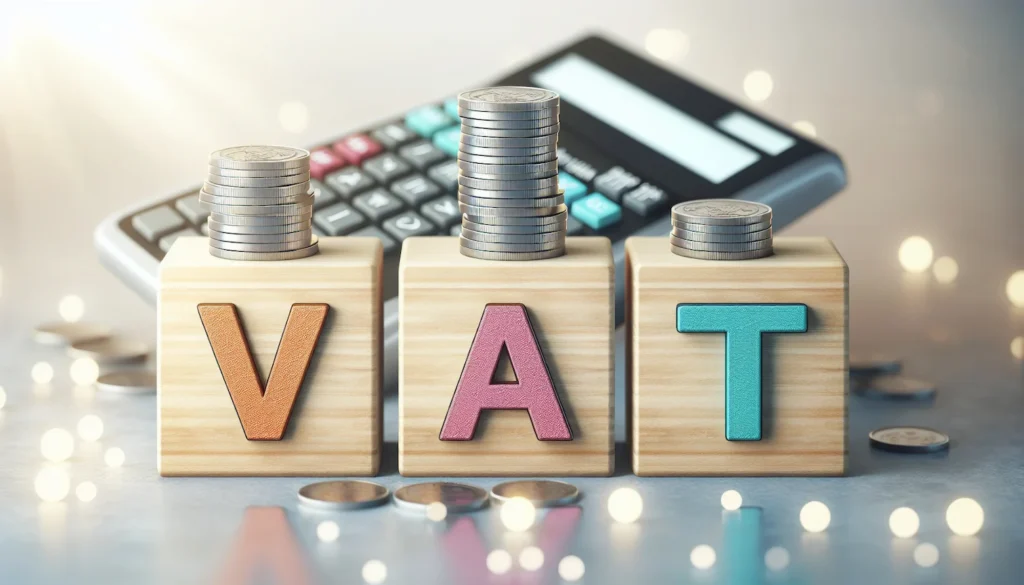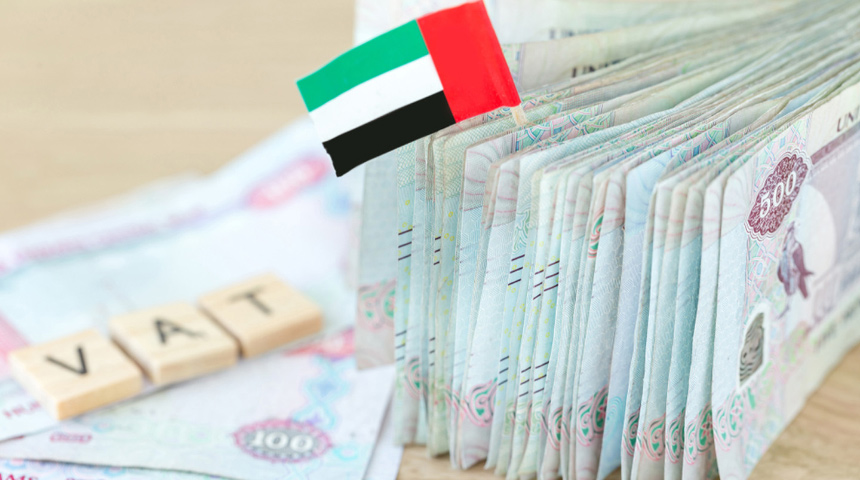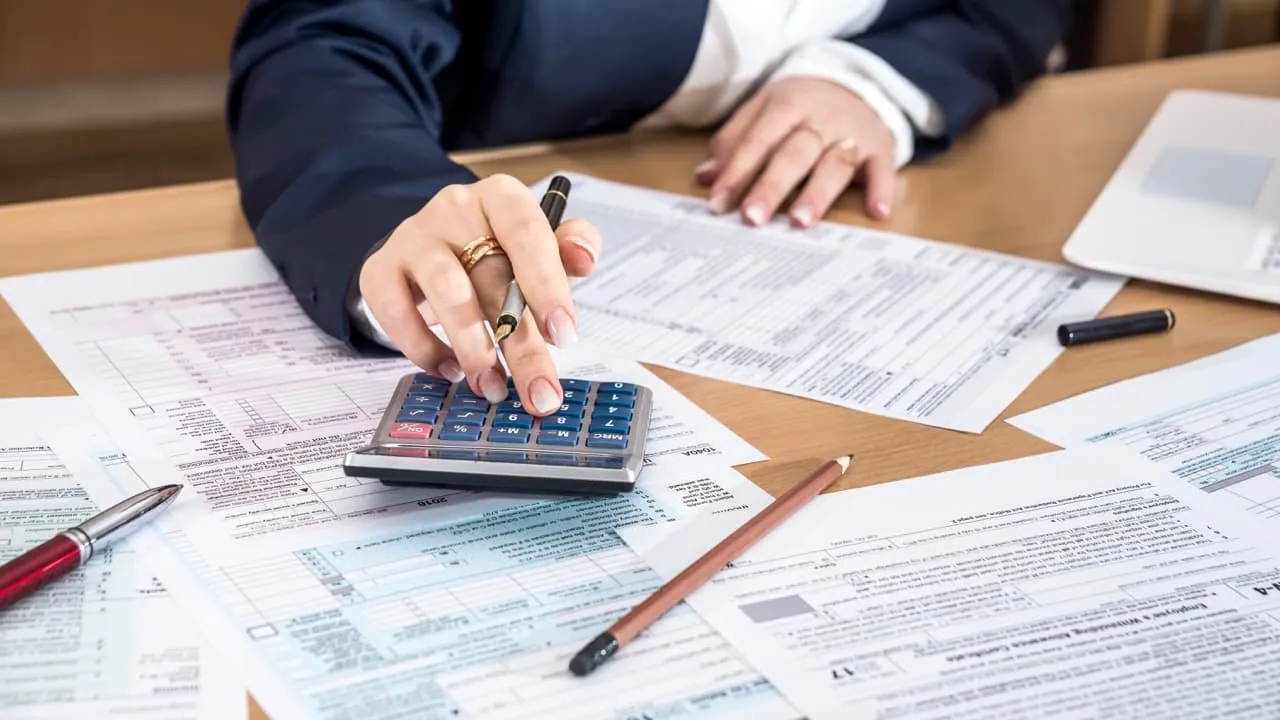Establishing a company in the United Arab Emirates (UAE) offers several advantages, including a reliable banking system, simplified registration, developed infrastructure, and tax benefits. These benefits are especially relevant for businesses not involved in health-hazardous goods like alcohol and tobacco. Additionally, like many other countries, the UAE implements a Value Added Tax (VAT). It was on January 1, 2018, when was VAT introduced in UAE by the Gulf Cooperation Council (GCC).
In this material, we will detail what VAT is, which businesses it applies to, how to calculate it, and other important VAT-related nuances that are important to know for doing business in the UAE.
What is VAT in UAE?

VAT (Value Added Tax) is an indirect tax paid by all participants in the sales chain. Companies in the UAE with an annual revenue of at least $102,100 (over 375,000 AED) are required to pay this tax to the government. In the Emirates, VAT is referred to as VAT, an abbreviation for Value Added Tax.
Difference between VAT and sales tax
Sales tax is a direct tax levied only at the retail stage. VAT, however, is added to the cost of goods or services paid by consumers, whether individuals or companies, and is then remitted to the government by the seller. VAT is considered an indirect tax because it is fully borne by the buyer; the seller can deduct this amount before calculating their tax liabilities. Conversely, sales tax is calculated on the gross value of goods and services.
It’s important to note that the UAE has a Tax-Free system for tourists to encourage foreign purchases. For example, in Dubai, some stores mark receipts with a special stamp, allowing tourists to claim a VAT refund when they leave the country by presenting their departure documents.
VAT rate in the UAE
VAT is levied at the standard rate of 5% in every supply chain for the sale of goods and services. However, in some cases, the value-added tax rate can be 0%. There are also conditions under which companies are exempt from VAT.
Who is a VAT payer in Dubai
Companies with an annual turnover potentially expected to exceed 375,000 AED within the next 30 days must register for VAT with the Federal Tax Authority (FTA) and maintain VAT records. Businesses can also opt for voluntary VAT registration if their annual revenue reaches 187,500 AED.
How to register for vat in UAE:
- the legal entity must be registered as a taxable person;
- the taxable person must sell goods and services subject to VAT;
- the place of supply must be the UAE*.
*VAT applies to all businesses exceeding the mentioned annual turnover threshold. However, certain companies engaged in qualifying activities may be exempt from VAT at the discretion of the Federal Tax Authority. Additionally, the UAE has several designated zones where businesses are exempt from VAT.
UAE VAT Law

In this section, we will delve into the nuances of VAT: what it applies to, who pays VAT when providing services, how to optimize taxes, and how to get VAT certificate in UAE.
Businesses subject to VAT
Companies falling under the VAT taxpayer category include those:
- selling goods or services;
- importers of goods;
- enterprises subject to reverse VAT. What does this mean?
Reverse VAT in the Emirates is a special mechanism whereby the obligation to pay VAT is shifted from the supplier to the buyer. It applies to certain types of transactions, such as construction services, the sale of precious metals, oil, and gas. In such cases, the supplier does not charge VAT to the buyer’s account, and the buyer themselves accounts for it in their declaration.
VAT registration UAE specifics
Companies obligated to pay VAT must register with the Federal Tax Authority. To do this, they need to submit an application, documents of business registration, valid trade licenses, information about the applicant’s bank account, etc. Upon registration as a VAT taxpayer, the company is assigned a unique VAT number UAE (Tax Registration Number, TRN). This number is used for official activities, i.e., for identifying the company for commercial and tax purposes.
Important:
- Failure to comply with the VAT registration requirements can lead to penalties. It is advisable to seek professional assistance with registration and reporting issues.
- If the value of trading operations over 12 months does not exceed the threshold for voluntary VAT registration, the taxpayer has the right to submit an application to the tax authority to cease VAT activities.
VAT in real estate
Are real estate properties subject to VAT? The charges depend directly on the category of the premises. Residential properties are not subject to VAT when sold/rented. Individuals pay only a property transfer tax and a 4% registration fee. Owners also make an annual advance payment for housing maintenance, the amount of which is determined by the developer.
VAT is levied on the purchase of real estate in the UAE only for transactions involving commercial properties at the standard UAE VAT rate of 5%. Compared to European countries where VAT can be up to 25%, this rate is significantly more favorable. In addition to VAT, tenants of commercial premises pay a municipal tax of 10%.
How tax is collected
Enterprises registered as VAT payers collect 5% on behalf of the government from the end consumer. To do this, a VAT percentage in UAE is added to the cost of goods and services.
Depending on the type of tax – input or reverse – determines what VAT is charged on, purchase or sale:
- If the VAT is input or reverse, a 5% charge applies when purchasing goods and services. An example of an input VAT: if a buyer purchases a product for 1000 AED, then the VAT amounting to 47.62 AED will already be included in it. In this case, the seller receives a net sales sum of 952.38 AED.
- If the VAT is outgoing, a 5% charge is applied when selling goods and services. For instance, if a buyer needs a product priced at 1000 AED, they will pay an additional fee of 50 AED on top. The seller then reports that he sold the item for 1000 AED while remitting the extra 50 AED to tax authorities.
How to optimize taxes
UAE boasts bilateral treaties with 138 nations worldwide, allowing its inhabitants and foreign nationals to be exempt from dual-taxation scenarios. Furthermore, in 2018, it became part of CRS, an integrated data-sharing platform.
To avail these tax benefits, you need to obtain a VAT Certificate, which is valid for one financial year and a Commercial Activities Certificate. The latter allows you to reclaim VAT paid outside of the UAE.
Who is exempt or partially exempt from VAT

A zero VAT rate may be applied to businesses whose activities are related to:
- exporting products outside the GCC countries;
- importing goods into free economic zones;
- construction and sale of residential properties, as well as their rental;
- international passenger transportation;
- supply of certain precious metals, unrefined oil and natural gas;
- sale of land plots without buildings on them;
- provision of medical, educational, and financial services.
VAT regime for Free Economic Zones in the UAE
The Emirates have several dozen (currently more than 40) “free zones”, now referred to as FEZs. They may be exempt from tax subject to certain conditions at the discretion of the tax authority. FEZs are located in Dubai, Abu Dhabi, Sharjah and other Emirates. A list of FEZs can be found on this page.
Let’s address such questions on how much is VAT in Dubai: the term “free zones” does not imply the absence of tax fees. The thing is that Special Economic Zones (SEZs) usually have unique rules and regulations that may differ from the general rules adopted in other Emirates.
These zones were created specifically to attract investors. Therefore, they allow:
- 100% ownership of the company by investors;
- exemption from import and export taxes;
- repatriation of capital, i.e. the ability for foreign citizens to return 100% of their investments.
To qualify for VAT exemption, the following conditions must be met:
- move goods only between the specified zones;
- adhere to customs rules provided by the Gulf Cooperation Council;
- follow internal procedures related to the storage and processing of goods.
VAT reporting and payment
Maintaining accounting records is a mandatory requirement of the UAE legislation. Failure to comply with this requirement may result in substantial fines. Reporting includes an annual company audit, profit and loss statements, recording all expenses and income, including salaries and business operations.
Accounting specifics
Companies are subject to VAT based on the place of provision of services or place of residence. VAT returns are filed with the FTA on a regular basis within 28 days after the end of the tax period:
- Companies with revenue up to AED 150,000 file quarterly reports.
- Companies with revenue over AED 150,000 must file monthly reports.
It is important to understand all the financial nuances and legislative requirements to properly complete the declarations. Our company can assist with this by taking over the accounting reporting.
How to calculate VAT
The VAT amount is the difference between the selling price and the final cost to the consumer. Accountants use a specific scheme to determine how to exclude VAT from the total amount. Since VAT can be input and output, there are two calculation formulas:
- If the selling price does not include VAT, the formula looks like this: VAT Amount = Price × (VAT Rate / 100)..
- If the selling price includes VAT, the formula is as follows: VAT Amount = Price × (VAT Rate / (100 + VAT Rate))..
Calculation example: what is the VAT amount if the selling price is 100 AED and the VAT rate is 5%:
- For output VAT: VAT Amount = 100 AED × (5/100) = 5 AED.
- For input VAT: VAT Amount = 100 AED × (5/(100+5)) = 4.76 AED.
How to pay VAT: You can pay in dollars, but it is better to buy dirhams or clarify at what exchange rate they will be calculated at the bank.
Other taxes in the UAE

The tax system in the UAE can rightfully be called lenient, especially compared to European countries.
It includes:
- local taxes, i.e., those that apply in a specific Emirate: for example, if we look at the taxes in Dubai, the most relevant ones are VAT, introduced since 2018, and corporate tax, introduced in 2023;
- the presence of free economic zones with preferential conditions for foreign entrepreneurs;
- personal income taxes;
- various fees, such as tourist fees, registration fees for real estate purchases, and business license fees.
However, given that the UAE lacks a number of fees, such as personal income tax, luxury tax, capital gains and dividends, doing business and investment conditions here are truly attractive.
Conclusion
In this article, we have reviewed current information on what VAT is, who it is charged to, and how it is calculated. Let’s summarize:
- If your company sells taxable goods and it is not registered in “designated zones” within 30 days before reaching the expected turnover of 375,000 dirhams, you should start the VAT registration process.
- Different tax rules may apply in different Emirates; for instance, many taxes for individuals are absent in Dubai, but there are other fees.
- You can reduce the tax burden by registering as a tax resident, or even better, by opening a company in a free economic zone.
The information provided above is for informational purposes only. As the relevance of the information changes quickly, for example, VAT in Dubai in 2024 may not apply in all zones, but the situation may change by 2025. If you need professional assistance with company registration, residency processing, or how to do VAT filing in UAE, please contact the managers at Dynasty Business Adviser!









